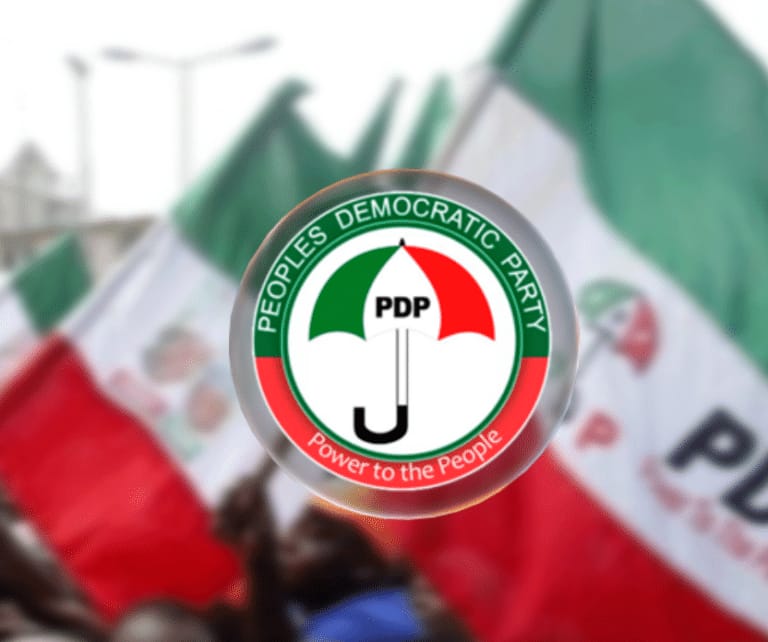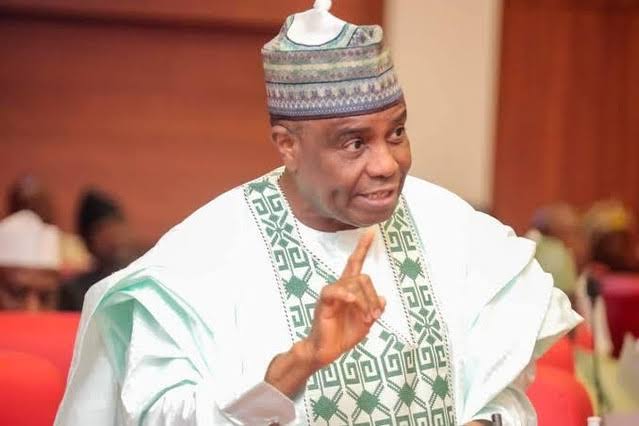The Peoples Democratic Party (PDP) has criticised a recent Canadian court decision that classified Nigeria’s two main political parties — the PDP and the All Progressives Congress (APC) — as terrorist organisations. The party described the ruling as “misinformed, biased, and lacking evidence,” and called for its immediate dismissal.
The controversy stems from a June 17, 2025, judgment by Justice Phuong Ngo of the Federal Court of Canada, which upheld a ruling by the Immigration Appeal Division (IAD) declaring both the PDP and APC to be terrorist organisations. The ruling came in the case of Douglas Egharevba, a Nigerian national who sought asylum in Canada but was denied on the grounds of his political affiliations.
Egharevba was a member of the PDP from 1999 to 2007 before joining the APC, where he remained until 2017. He moved to Canada in September 2017 and disclosed his membership history to immigration authorities. The Canadian Minister of Public Safety and Emergency Preparedness argued that both parties were linked to political violence, democratic subversion, and election-related killings in Nigeria.
Court records cited the PDP’s alleged role in ballot stuffing, voter intimidation, and attacks on opposition supporters during the 2003 state elections and the 2004 local government polls. Similar allegations have been made in the past against both major parties, often relating to Nigeria’s turbulent electoral history.
In its defence, the PDP rejected the blanket classification as unfounded. Deputy National Youth Leader Timothy Osadolor, speaking to journalists in Abuja, said such a ruling ignored the realities of Nigerian democracy and risked unfairly tarnishing the reputation of legitimate political institutions.
Osadolor noted that while both Nigeria and Canada are democracies that uphold freedom of speech, such rights should be exercised responsibly. He argued there was “nothing to show” that the PDP or even the “malfunctioning APC” met the legal or factual definition of a terrorist organisation.
He further stated that if evidence existed linking specific individuals within the APC-led government to terrorism, such as documented incidents involving known insurgents, then targeted accusations would be justified. He cited reports of a former Boko Haram leader allegedly found in the residence of a prominent government member as an example of individual culpability. However, he maintained that holding entire political parties responsible was unjust and lacked legal merit.
The PDP’s statement urged Canadian authorities to direct their focus towards substantiated allegations against individuals rather than issuing sweeping generalisations that could have diplomatic and political repercussions. The party also stressed its role as a “credible institution” committed to democratic governance, despite Nigeria’s well-documented political challenges.
The ruling has generated debate within Nigeria’s political and legal circles, with concerns that such foreign judicial decisions could set a precedent for international stigmatisation of political organisations based on contested historical accounts. For the APC, which has not yet issued an official response, the implications of being labelled alongside the PDP in this context may also pose reputational and diplomatic challenges.
Egharevba’s legal options appear limited following the Federal Court’s decision to dismiss his application for judicial review. The case has drawn attention to how foreign courts interpret political violence in Nigeria and how such interpretations can affect both individuals seeking asylum and the global image of the country’s political system.
While the Canadian judgment remains in force, the PDP’s rejection of its conclusions underscores the broader dispute over how Nigeria’s electoral past is judged abroad, and whether such rulings can fairly distinguish between institutional responsibility and the actions of individuals.





